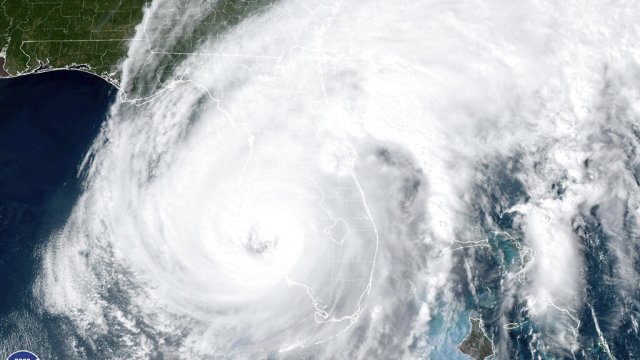The 2023 Atlantic hurricane season may be worse than first thought.
On Thursday, the National Oceanic and Atmospheric Administration increased its prediction from "nearly-normal" level of hurricane activity to "above-normal."
Forecasters made the adjustment, noting the warm surface water temperatures and the ongoing El Niño event.
“Considering those factors, the updated outlook calls for more activity, so we urge everyone to prepare now for the continuing season," said Matthew Rosencrans, lead hurricane season forecaster with NOAA’s Climate Prediction Center.
The latest update means NOAA is predicting 14 to 21 named storms in the six-month season, which ends on Nov. 30. A storm must have winds of at least 39 mph to be named.
NOAA says up to five of the storms could become major hurricanes with winds of 111 mph or greater. The agency notes that this does not necessarily mean that the storms will make landfall.
SEE MORE: Maui wildfire leaves 36 dead, hundreds of buildings destroyed
"A storm’s landfall is usually the result of mesoscale weather patterns and are typically predictable within roughly one week of a storm approaching a landmass," NOAA said in a statement.
So far this season, NOAA has identified five tropical cyclones in the Atlantic. Last year, there were 14 named storms.
The worst of them came toward the end of the season when Hurricane Ian formed in September. It made landfall in Florida as a Category 4 hurricane. Killing 156 people and causing $113 billion in damages.
Places like Fort Myers Beach are still in recovery mode.
"Complete destruction—everything you know—that I knew as a kid driving around on my bike all the time You know, all the landmarks are gone; all the houses are gone," said Graham Belger, a Fort Myers Beach resident.
Climate scientists say as humans heat the planet, hurricanes will change. While the raw number of storms may not change, the data shows they are getting stronger.
"Hurricanes are likely to produce more rain, 2 to 10%. There are likely to have more intense winds, about 3 to 11%. And the storm surge associated with them is likely to be greater because, as the sea level rises, we'll set the background for more storm surge in coastal regions," said Matthew Rosencrans, the lead Hurricane Forecaster at the NOAA Climate Prediction Center.
While there’s no predicting how many hurricanes will strike land this season, NOAA is urging people to be ready, get emergency supplies, and have a plan in place early.
"Last year, we had eight hurricanes that formed after the first of September. So the message now is to press to prepare now while it's quiet," said Rosencrans.
SEE MORE: What does prolonged ocean heat mean for our weather?
Trending stories at Scrippsnews.com




